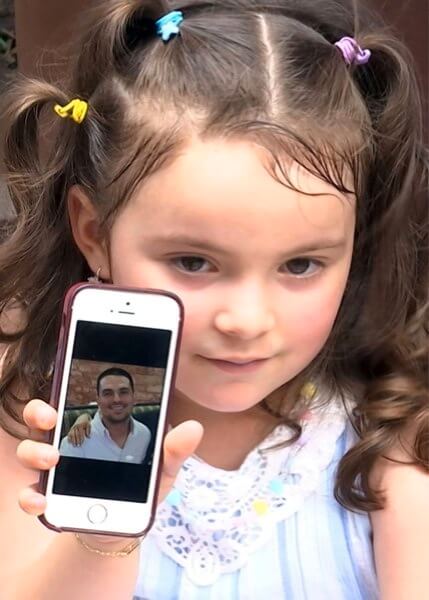By Julianne McShane
A federal judge stayed the deportation of an undocumented pizza deliveryman Tuesday and demanded he be immediately released from detention nearly two months after Immigration and Customs Enforcement agents detained the driver of a College Point restaurant at Fort Hamilton Army Base on June 1.
U.S. District Judge Paul Crotty in Manhattan wrote that even though Pablo Villavicencio-Calderon, 35, was in the country illegally, he had always abided by the law and consequently deserved to be reunited with his family.
“Although he stayed in the United States unlawfully and is currently subject to a final order of removal, he has otherwise been a model citizen,” Crotty ruled. “He has no criminal history. He has paid his taxes. And he has worked diligently to provide for his family.”
Crotty also noted that Villavicencio-Calderon’s freedom will give him the chance to resume the paperwork process he began in February to apply for a green card. And the decision stipulates that the only way Villavicencio-Calderon can be deported in the future is if ICE denies any of his three applications, or if the driver for Nonna Delia’s commits a crime after his papers are approved.
Gov. Andrew Cuomo called Villavicencio-Calderon’s release “a victory for New Yorkers and for basic human rights,” but said the deliveryman never should have been detained in the first place.
“There was absolutely no legitimate reason to lock up Mr. Villavicencio and take him from his wife and children, and I am relieved that he will finally be reunited with his family,” Cuomo said in a statement.
Earlier in the day, lawyers representing the federal government and Villavicencio-Calderon sparred at a hearing before Crotty over whether or not he should remain detained at Hudson County Correctional Facility in New Jersey.
The chief of the U.S. Attorney’s Office Immigration Unit, Joe Cordaro, argued that Villavicencio-Calderon should remain in custody since he overstayed a 2010 voluntary deportation order and consequently had an active arrest warrant on file.
But Villavicencio-Calderon’s lawyers from the Legal Aid Society, Gregory Copeland and Sarah Gillman, insisted that he should be released so that he could be with his family and resume his immigration application, adding that they had just received word that the government had scheduled the deliveryman’s first interview in the immigration process for Aug. 21 after his wife — a U.S. citizen — filed initial paperwork back in February.
But most of the courtroom’s back-and-forth occurred between Crotty and Cordaro, as the judge slammed him with questions about the legal basis of Villavicencio-Calderon’s detention, asking how the feds justified keeping the deliveryman locked up and away from his family when he had no criminal record.
“Why is he being detained? Is he a threat to the community?” Crotty asked. “What is the danger to the community for a man who’s committed no crimes?”
But Cordaro replied that the federal government did not take Villavicencio-Calderon’s lack of a criminal past into account when they decided to detain him.
“That’s not really the analysis that the Department of Homeland Security uses,” Cordaro said.
Crotty demanded a better answer.
“What do they use?” he asked.
Cordaro said he could not answer that question on behalf of the Department of Homeland Security.
Later, the judge asked the lawyer if the case mattered in the grand scheme of things and if the government was really handling Villavicencio-Calderon’s case with justice in mind.
“What difference does this make in terms of the larger issues facing the country?” Cordaro asked. “Is there any concept of justice here?”
Cordaro replied by reminding Crotty that Villavicencio-Calderon overstayed a voluntary deportation order, but Crotty quipped that that infraction amounted to human error — and one that didn’t justify ripping the deliveryman away from his family forever.
“He made a mistake,” the judge said.
The courthouse’s overflow room, where a few dozen spectators and protesters had gathered to watch the proceedings, erupted in applause and cheers at Crotty’s apparent defense of Villavicencio-Calderon.
But then Crotty pushed the deliveryman’s defense team to explain why he had remained undocumented for so long.
“What took him so long?” Crotty asked. “He was here for almost 10 years before he started the immigration process.”
Villavicencio-Calderon’s lawyers replied that he had to “overcome hurdles” with the logistics of filing the lengthy paperwork and may have been worried about the “danger” involved with revealing his undocumented status.































